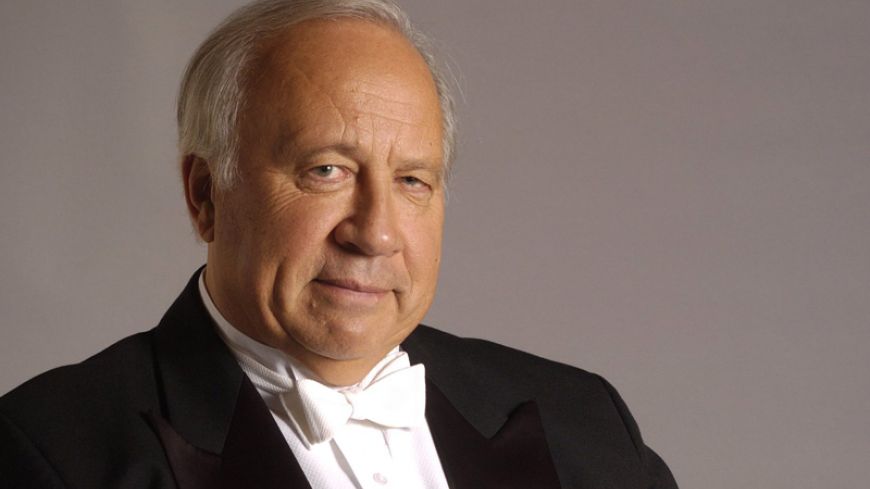
Neeme Järvi was the Royal Scottish National Orchestra’s Principal Conductor from 1984 to 1988 when he was in his late forties. Much respected, his career had begun with his native Estonian National Symphony Orchestra where he is due to return as Principal Conductor later this year. In the meantime he and his talented musical family became American citizens and he had a long period with orchestras in Detroit followed by New Jersey. Currently he is with the Residentie Orkest in The Hague.
There were just two pieces of music and nothing by way of introduction from the conductor, in the old fashioned way. But in a Radio 3 interview earlier in the week about this concert Neeme Järvi was excited, indeed very excited, at the programme if only because it broke the overture, concerto then symphony mold.
Sibelius wrote his incidental music in 1905 for Maeterlinck’s play, Pelléas and Mélisande, some ten years after the play was first performed. The story tells how Pelléas and Mélisande fall in love only later to die. It was chanted not spoken and with gestures from the actors in a form that became known at Theatre Art l`Oeuvre.
Debussy made an opera of it, a tone poem came from Shoenberg and both Fauré and Sibelius wrote incidental music for stage productions. From his incidental music Sibelius arranged the concert suite in nine movements. And moving and sophisticated they were, ending with The Death of Mélisande. The applause was as from an audience not familiar with the music, but grateful.
We had heard the cor anglais solo of Mélisande and more cor anglais treats were to come after the interval from Zoe Kitson, the RSNO’s Principal cor anglais player. Neither a horn nor originally English, the instrument is a longer oboe with deeper notes.
Neeme Järvi was back on his podium to conduct orchestral excerpts from Wagner’s opera Tristan and Isolde, arranged in 1994 by Henk de Vlieger. The seven excerpts we heard came from the core of opera - what is going on in the minds of the lovers, a hymn to love. Without a gap between them they got us excited and then went down, but up again.
The lovely cor anglais solo, a shepherd’s air, gave us an insight into Tristan’s state of mind. Unlike the mournful end to the earlier Sibelius, this Wagner arrangement built up to end on a high - and the applause was the greater, for it was also more familiar music.
Event: Friday 19 February 2010, 7.30pm

